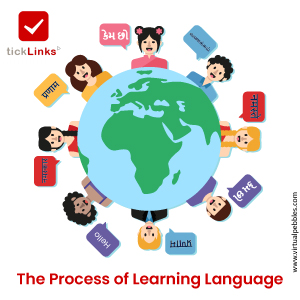What Experiences lead to Learning in Children?
It is fascinating that kids have the ability to be very creative and learn new things. Kids have minds designed to learn, and adults have minds designed to perform.
Adults experience functional fixedness, which causes them to perceive everything precisely as it is due to the brain's maturation. An adult, for instance, will view a tennis racquet exactly as it is. A child, however, will interpret a broomstick as a javelin stick. Children often act in ways that adults find humiliating when learning. Children will feel uncomfortable in the future when they reflect on an incident, but they don't feel humiliated right now. They would not have done those things or grown as they did if they had been terrified of appearing silly.
Children's creativity is caused by their developing brain, which allows them to be flexible and inventive.
This could be a fantastic method to encourage young children to discover their skills. Making a child try a variety of hobbies may be the most significant course of action for a parent because it will assist the youngster in developing their abilities through creativity.
Different paces of learning:
- Why do different children show different levels of learning?
- Some are reading the exact text with proficiency, and others are struggling hard?
Each kid learns at their own speed and has different areas where they excel. Barring few exceptions – most children should learn rapidly. You would have noticed – how children start picking words from their mother tongue – by the time they are one year old.
Recognizing children's innate interests and letting go of the adult's notion of what the child "should" be learning allows them to develop at their own rate and speed. Children learn naturally. Children will joyfully explore their surroundings if given the freedom to do so.
The Process of Learning Language:

Typically, babies start babbling around six months and say their first words between ten and fifteen months. After about 18 months, they start picking up an increasing number of phrases and putting them together into basic sentences. The neurons in the appropriate regions of a baby's brain create additional synapses when it hears speech. These connections get more vital the more speaking they hear. They see a four-fold increase in vocabulary between the ages of one and two. Since there are various neural pathways, children learn new languages without developing accents since their brains don't become habituated to a particular pronunciation style.
This process of learning a language is greatly encouraged and supported by parents, grandparents and siblings around the child. They laugh, smile and correct the child gently. They repeat with the child many times. An environment is created – where the child loves to learn.
On the other hand – if the child is scolded for mistakes or hit – the child may develop stammering or may not learn to speak till late. The child's vocabulary may also not develop.
How to handle their growth phase
Kids are highly sensitive and can be hesitant with new people or experiences. Significant changes should be introduced gradually. Visiting the new classroom or teacher or before they start a new activity - if possible - prepare them by introducing them to what's to come. If the children get comfortable at the start and enjoy the introduction, they will likely pick up the activity fast.
Remember – 'Push or Fuel'. It is difficult to pus a car. Instead, if you put fuel into the car – it will go a long distance: preparation, encouragement, and building self-confidence – all act like fuelling your child. Reprimand, punishment etc., act as push – it will not drive your child far.
It is essential to be tolerant of your child's sensitivities. Try not to take their reactions and behaviour personally and focus on helping them - by providing a stable, safe base for them to explore the world at their speed. By giving them "roots and wings,"—you can set them up for future success.
It's a big job to figure out what makes kids tick. Thus, child psychology is a broad and in-depth field of study. The aim is to better parenting, education, child care, psychology, and other areas that aid children by studying the various variables that combine and interact to help shape children into who they are. Parents and other adults who live with children can better support the children in their care by thoroughly understanding how they develop, think, and behave.
tickLinks provides opening activities, games, stories, and projects – to help the teachers and encourage and motivate students. tickLinks brings out the innate learning power of the child – so that they enjoy learning and learn fast.

